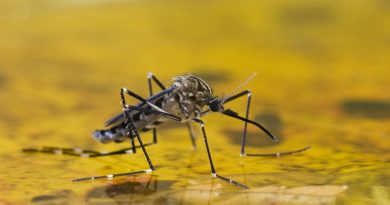Yellow Fever
Overview:
Yellow fever is a viral infection spread by a particular type of mosquito. The infection is most common in areas of Africa and South America, affecting travelers to and residents of those areas.
In mild cases, yellow fever causes fever, headache, nausea and vomiting. But yellow fever can become more serious, causing heart, liver and kidney problems along with bleeding (hemorrhaging). Up to 50 percent of people with the more severe form of yellow fever die of the disease.
Symptoms:
During the first three to six days after you’ve contracted yellow fever — the incubation period — you won’t experience any signs or symptoms. After this, the infection enters an acute phase and then, in some cases, a toxic phase that can be life-threatening.
Acute phase
Once the infection enters the acute phase, you may experience signs and symptoms including:
- Fever
- Headache
- Muscle aches, particularly in your back and knees
- Sensitivity to light
- Nausea, vomiting or both
- Loss of appetite
- Dizziness
- Red eyes, face or tongue
These signs and symptoms usually improve and are gone within several days.
Toxic phase
Although signs and symptoms may disappear for a day or two following the acute phase, some people with acute yellow fever then enter a toxic phase. During the toxic phase, acute signs and symptoms return and more-severe and life-threatening ones also appear. These can include:
- Yellowing of your skin and the whites of your eyes (jaundice)
- Abdominal pain and vomiting, sometimes of blood
- Decreased urination
- Bleeding from your nose, mouth and eyes
- Slow heart rate (bradycardia)
- Liver and kidney failure
- Brain dysfunction, including delirium, seizures and coma
The toxic phase of yellow fever can be fatal.
Diagnosis:
Diagnosing yellow fever based on signs and symptoms can be difficult because early in its course, the infection can be easily confused with malaria, typhoid, dengue fever and other viral hemorrhagic fevers.
To diagnose your condition, your doctor will likely:
- Ask questions about your medical and travel history
- Collect a blood sample for testing
If you have yellow fever, your blood may reveal the virus itself. If not, blood tests also can detect antibodies and other substances specific to the virus.
Treatment:
No antiviral medications have proved helpful in treating yellow fever. As a result, treatment consists primarily of supportive care in a hospital. This includes providing fluids and oxygen, maintaining adequate blood pressure, replacing blood loss, providing dialysis for kidney failure, and treating any other infections that develop. Some people receive transfusions of plasma to replace blood proteins that improve clotting.
If you have yellow fever, your doctor will likely recommend that you stay inside, away from mosquitoes, to avoid transmitting the disease to others. Once you’ve have yellow fever, you’ll be immune to the disease for the rest of your life.




